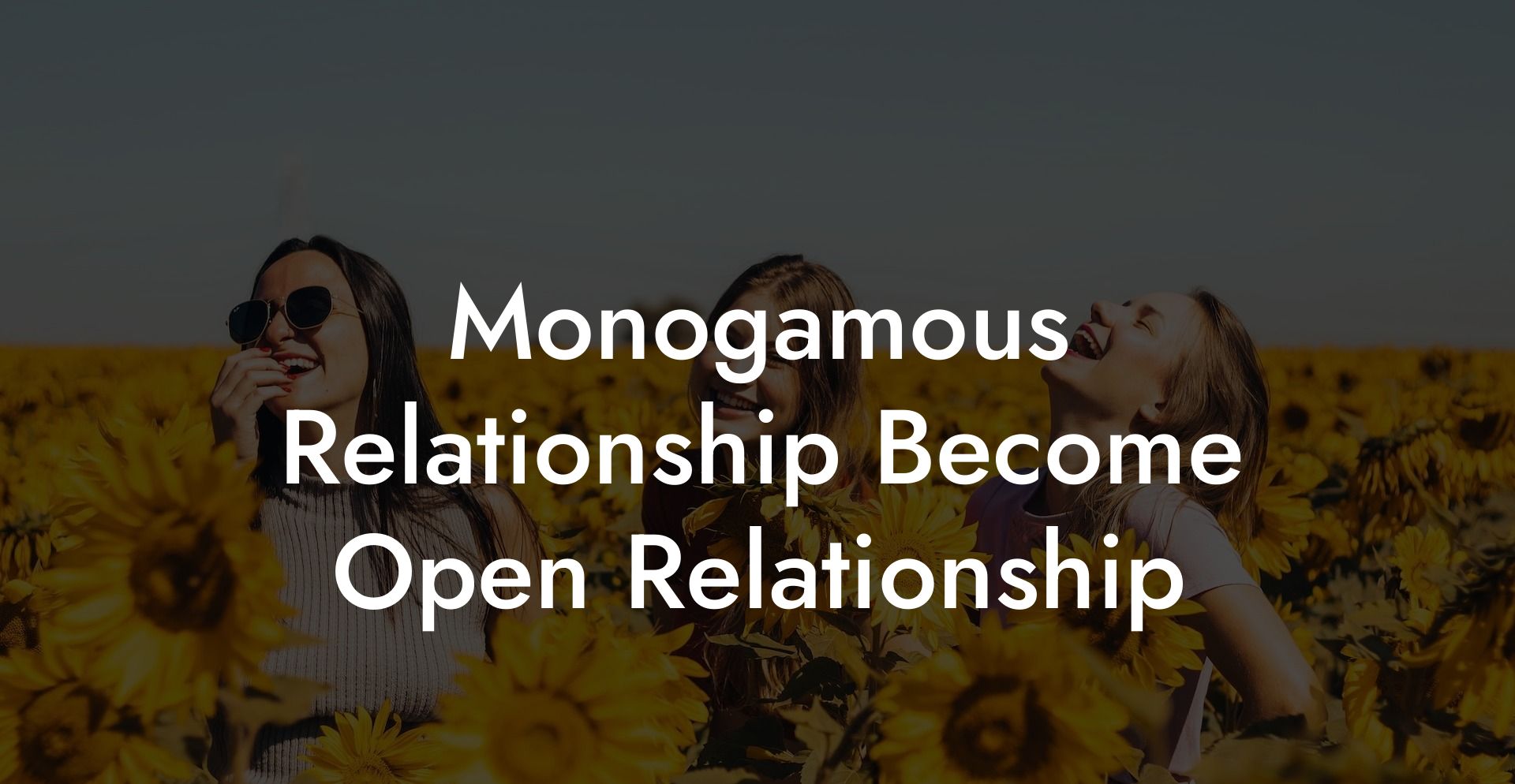Are you and your partner thinking about opening up your monogamous relationship? Before taking the leap, it's important to understand the potential benefits, challenges, and steps to transition from a traditionally monogamous relationship to an open one successfully.
Monogamous Relationship Become Open Relationship Table of Contents
Understanding Open Relationships
An open relationship is a committed partnership where both individuals agree to some extent of non-monogamy. This means that while they maintain a strong emotional and romantic connection, they have the freedom to explore other relationships – either sexual or emotional – with the consent of their partner.
The Benefits of Open Relationships
- Improved communication: Setting boundaries and discussing comfort levels means that couples have to practice open and honest communication.
- Enhanced trust: Trust will play a significant role in an open relationship, as partners will need to trust each other to make good decisions, respect boundaries, and manage jealousy.
- Increased personal growth: Exploring non-monogamous relationships allows for personal growth and development as individuals learn more about their desires and needs.
- Reduced monotony: Opening up the relationship can add variety, excitement, and novelty to the couple's romantic or sexual lives.
The Challenges of Open Relationships
- Jealousy: Although trust is crucial, jealousy can still come into play, even in open relationships. This may require additional communication and reassurance.
- Time management: Balancing multiple relationships can be significantly more time-consuming, giving rise to potential conflicts.
- Social stigma: Non-monogamous relationships may face disapproval or judgment from friends, family, or society as a whole.
- Emotional management: Navigating the various emotions that may arise from an open relationship might prove to be challenging.
Making the Transition
If you and your partner have decided to try an open relationship, it's essential to follow these steps for a smooth and successful transition:
1. Communicate openly
Discuss your expectations, boundaries, and needs extensively. Be honest about your feelings, and encourage your partner to do the same. It's vital to remain open to feedback and ensure you both feel comfortable sharing your experiences.
2. Establish clear boundaries and rules
Define the guidelines for your open relationship. Discuss potential limitations, such as types of relationships, frequency of encounters, or other specifics that both partners agree upon.
3. Explore at a comfortable pace
It's essential not to rush into new relationships or experiences. Take your time and ensure you and your partner remain on the same page throughout the process.
4. Maintain trust and honesty
An open relationship relies heavily on trust. Be honest with your partner and keep them informed about your experiences and emotions.
5. Expect challenges and be prepared to face them
Recognize that an open relationship won't always be smooth sailing. Prepare for potential jealousy, resentment, or other emotional challenges and prioritize communication and emotional support.
Monogamous Relationship Become Open Relationship Example:
Jane and Jack have been in a monogamous relationship for seven years. They have discussed the idea of opening their relationship and decide that they both want to explore the possibility. They begin by setting clear boundaries: they agree on no romantic relationships, a "don't ask, don't tell" approach to experiences, and a monthly check-in to discuss their feelings.
Eventually, they face a challenge when Jane realizes she's becoming jealous of Jack's relationship with another partner. They address the issue by having open and honest conversations about their emotions and expectations.
Diving into an open relationship might be daunting, but by understanding the benefits and challenges and following the steps outlined above, you and your partner will be better equipped to navigate this new chapter in your relationship. If you found this article helpful, please share it with others who might be interested in learning more about open relationships. And don't forget to explore other content on The Monogamy Experiment for a wealth of additional insights and guidance on the intricacies of monogamy, non-monogamy, and polyamory.













